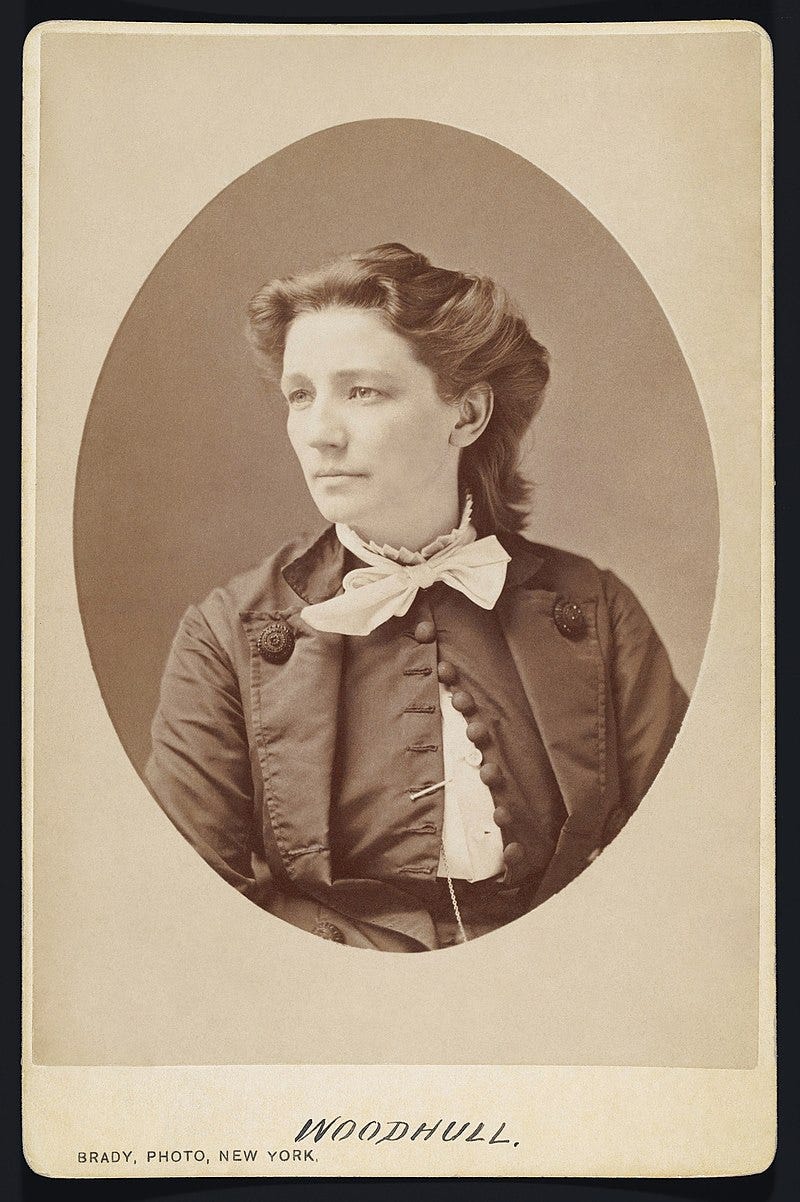In August of 1619, the first African slaves came to Jamestown, in the English colony of Virginia. There were twenty of them, stolen by the British crew from a Portuguese slave ship. The 1619 Project, the New York Times Magazine series, book, and podcast that focuses on the history of slavery in the United States, takes its name from the year of this event.
But Black slaves were not the only victims of oppression to arrive at Jamestown that fateful year. Ninety so-called “tobacco brides”—single women from England, most very young, most sent against their will—also came to Virginia in 1619. They were auctioned off at Jamestown for 150 pounds of tobacco—enough to cover the cost of their travel—and all 90 of them married a Jamestown settler.
These were the first female European settlers in the New World—or so I learned in high school. I remember my (male) teacher making a crack about women and slaves showing up the same year. “Same difference,” he said, or words to that effect.
The joke was not funny, but it also wasn’t entirely wrong. The tobacco brides were not slaves like the Africans, but they were at best second-class citizens, subservient to their husbands. They had no rights. The laws did not protect them. And by 1625, two thirds of them would be dead.
The situation did not improve for women in the New World until the Revolution, when state laws gave them (extremely limited) property rights. Jill Lepore explores this misogyny in her superb These Truths: A History of the United States, pointing out the discrepancies in treatment of Benjamin Franklin and his just-as-brilliant sister, Jane. Because girls did not attend school, Ben taught Jane how to read and write.
In Massachusetts in 1787, married women were finally allowed to conduct certain types of business as femme sole traders, usually if their husbands were off to sea or to war. That was about it. Generally, their ownership of property was predicated on a father, husband, or son. In 1839, Mississippi said it was okay for women to own their own slaves. New York provided women the right to own property by the start of the Civil War. It wasn’t until the turn of the 20th century that the rest of the country caught up.
Prohibition was fueled in the main by women, who were fed up with their husbands blowing scarce money on alcohol, and then coming home drunk and abusing them. While a boon to organized crime, Prohibition did succeed in one fundamental way: even after repeal, Americans consumed much less alcohol than they had before.
Women were not allowed to vote in the United States until 1920. Until 1969, women could not easily obtain a divorce. Until 1974, women could not have their own credit cards. Until 1978, women could be fired from their job for getting pregnant. Until 1980, there was no such legal concept as workplace sexual harassment.
In the United States of Misogyny, it has always been thus.
By law, in 2022, women have more equality than ever before. But the misogyny remains baked into the system. In the long history of this country, there have been 80-some-odd individuals who have been either president or vice president. Only one, our current MVP Kamala Harris, has been a woman. There have been 115 Supreme Court Justices; you can name the five women. (Note: I have a bad head cold, and I keep Googling these stats to make sure they are correct, as they seem so very wrong.)
Misogyny is insidious. Misogyny cost Hillary Rodham Clinton the 2016 election—condemning the country to years of woe. Misogyny drives negative and/or insipid coverage of Kamala Harris. Misogyny informs how the press covers the draconian antichoice legislation popping up in red states around the country, like this egregious piece of cruelty from Missouri:


Antichoice legislation is fascist legislation. Laws like this are the first sorties by fascists lawmakers hoping to eradicate our democracy. But because of misogyny, the press does not cover it that way. The press treats it as a woman’s issue.
Because of misogyny, most people don’t realize that one of the greatest female athletes in the world, Brittney Griner, is being held right now in a Russian prison. When a woman journalist suggested that if Tom Brady were in that situation, it would be treated differently—she didn’t even write the story, just pulled a quote from it!—she was ratio’d so hard “Tom Brady” trended on Twitter all afternoon.
As always, it is the women who bear the brunt.
March is Women’s History Month. Let us remember the 1619 tobacco brides and the sisters of the Founders. Let us learn about Victoria Woodhull, Susan B. Anthony, Elizabeth Cady Stanton, Carrie Nation, Margaret Sanger, Eleanor Roosevelt. Let us acknowledge that misogyny has not gone away, has only gone underground, and that it afflicts the left as well as the right. (There’s a reason they’re called Bernie bros.)
Hillary was right. Women’s rights are human rights. Let us—and by “us,” I mostly mean “white men”—start behaving accordingly.
This week, I’m reprising one of my favorite episodes of the PREVAIL podcast, my interview with Donna Ladd of the Mississippi Free Press.
Photo credit: Victoria Woodhull by Matthew Brady.







Superb article, Thank You! So that's why, in 1977 on my good, full time salary, I could not get a car loan in my name ("You might get pregnant" the loan officer had said), but my husband, full time student, NO income, could walk into that same bank the next day and get MY car financed (and get my faithful payments listed on his credit report). P.S. The following year, I was awarded a full scholarship and generous stipend for graduate school, and, while pregnant, paid that car off.
Thank you, Greg. More true every day, especially due to Trump and GOP:
“The better I get to know men, the more I find myself loving dogs.”
- Charles de Gaulle